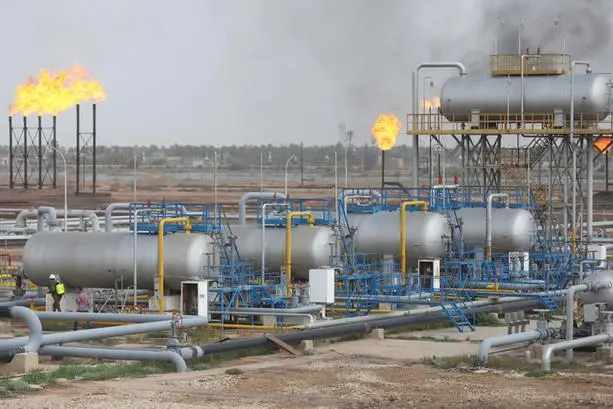PHOTO
TOKYO - Oil prices fell on Friday as concerns about Chinese cities in lockdown due to coronavirus outbreaks tempered a rally driven by strong import data from the world's biggest crude importer and U.S. plans for a large stimulus package.
Brent was down 71 cents, or 1.2%, at $55.71 by 0758 GMT, after gaining 0.6% on Thursday. U.S. West Texas Intermediate crude was 46 cents, or 0.9%, lower at $53.11 a barrel, having risen more than 1% the previous session.
Brent is heading for the first weekly decline in three weeks, while U.S. crude is on track for a third weekly gain.
While producers are facing unparalleled challenges balancing supply and demand equations with calculus involving vaccine rollouts versus lockdowns, financial contracts have been boosted by strong equities and a weaker dollar, which makes oil cheaper, along with strong Chinese demand.
A nearly $2 trillion COVID-19 relief package in the U.S. unveiled by President-elect Joe Biden may increase oil demand from the world's biggest crude consumer but worse than expected jobs data cast a shadow over the plans.
"With the Biden package offset by weak U.S. employment data, markets in Asia are disinclined to force prices," said Jeffrey Halley, senior market analyst at OANDA.
"They will leave it to North America to decide if a retest of the recent highs is justified into the end of the week," he said.
Crude imports into China were up 7.3% in 2020, with record arrivals in two out of four quarters as refineries increased runs and low prices prompted stockpiling, customs data showed on Thursday.
But China reported the highest number of daily COVID-19 cases in more than 10 months on Friday, capping a week that has resulted in more than 28 million people under lockdown and the country's first death from the coronavirus in eight months.
"Oil market euphoria is unequivocally strong, but market indicators from Asia are mixed," RBC Capital Markets said.
"China, the global engine of oil demand growth, is wrestling with fresh COVID outbreaks," it said.
(Reporting by Aaron Sheldrick; Editing by Michael Perry & Shri Navaratnam) ((aaron.sheldrick@thomsonreuters.com; 81-80-2677-4134;))





















